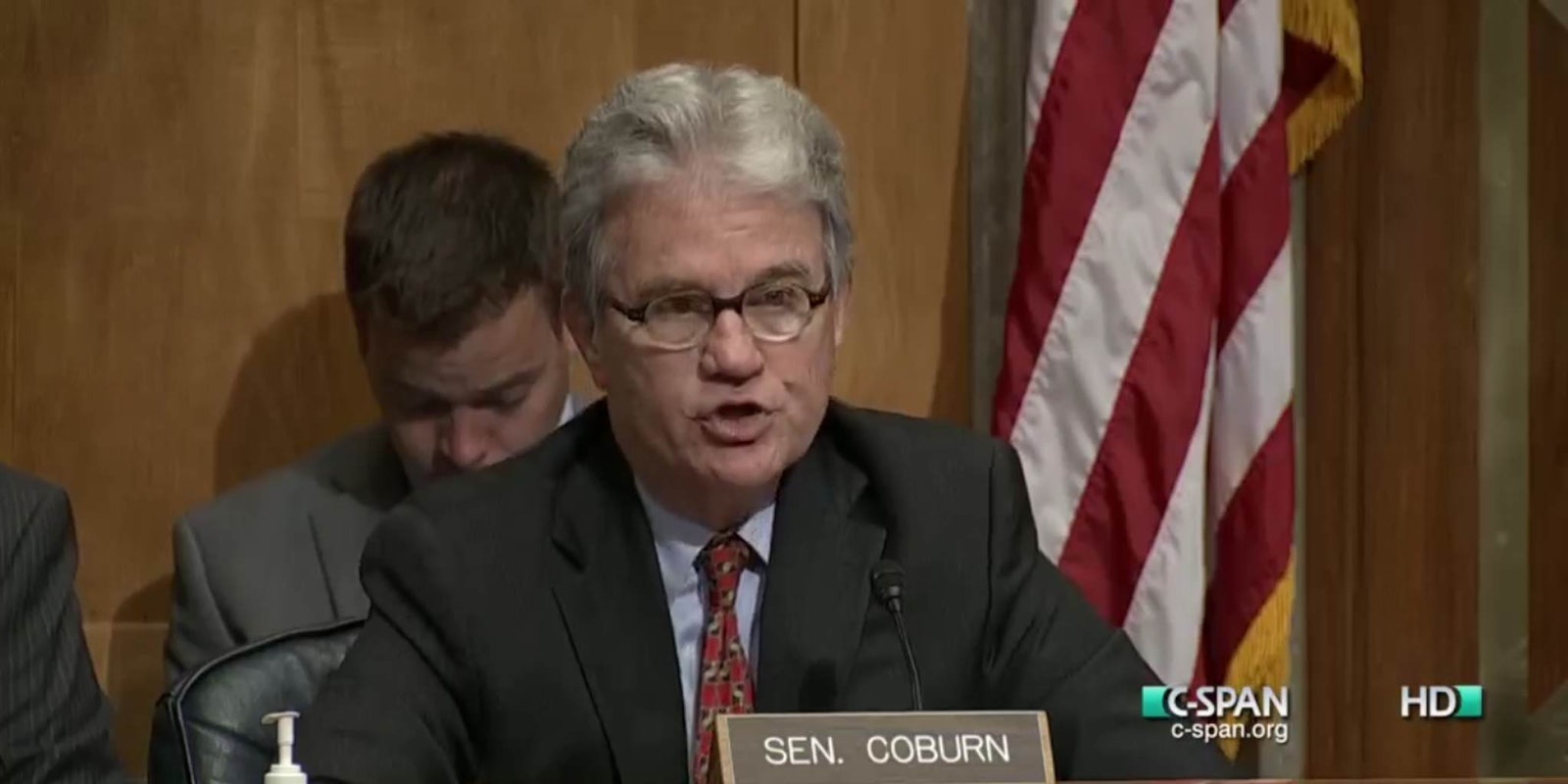On the eve of the 13th anniversary of 9/11, American Senators and intelligence officials met today in public and private hearings to discuss cybersecurity and real world terrorist threats posed the United States domestically and abroad.
“I think the threat to our country is just as great [today] as it was pre-9/11,” Sen. Tom Coburn (R-Okla) told a Homeland Security hearing on Wednesday on cyber and terrorist threats to the United States. “I don’t think we’re any safer today.”
Closely following a poll that said 47 percent of Americans believe the country is less safe today than in the lead up to 9/11, Coburn pointed to threats like ISIS and Al Qaeda as he articulated his numerous fears about future attacks on the U.S.
Coburn used the hearing as an opportunity to push for the senate to consider and pass the National Cybersecurity and Critical Infrastructure Protection Act, a bill meant to make clear exactly who is responsible for defending the United States against global cyberthreats. The bill, which passed the house and is currently waiting in the Senate, has bipartisan support and endorsements from organizations across the political spectrum like the American Civil Liberties Union, AT&T, American Chemistry Council, Boeing Company, and National Defense Industrial Association.
“In the coming weeks, it is my hope that we will also take further steps towards addressing cyber threats in the same manner that we have addressed terror threats in the wake of 9/11,” Chairman Tom Carper said to open the hearing.
Even so, few observers expect the senate to get much done in the coming weeks leading up to the 2014 mid-term elections. That pessimism is so pervasive that it touches even widely supported bipartisan legislation.
“The four categories of cyberthreats to our country are spies, transnational criminals, terrorists, and hacktivist groups,” Robert Anderson Jr., executive assistant director of the Criminal, Cyber, Response, and Services Branch at FBI Headquarters, told the hearing. Cyber-indictments like those seen against the cybercriminals behind Blackshades and the five Chinese military officers charged with cyberspying are the “new normal.”
Taking a somewhat more moderate tone, Nicholas Rasmussen, deputy director of the National Counterterrorism Center, told the hearing that cyber is one of those areas where we haven’t seen terrorists develop great capability in yet but “we will in the future.”
While all of the law enforcement and intelligence officials testifying asserted that ISIS is, for the most part, a regional actor, jihadists’ wide ranging use of social media to disseminate “high quality content” to promote violent propaganda poses a major issue.
“The most immediate threat comes from homegrown violent extremists,” Francis X. Taylor, the under secretary for Intelligence and Analysis at Homeland Security, told the hearing. “Someone who listens to propaganda [from groups like ISIS or Al Qaeda] and decides he or she will answer the call.”
Taylor and Rasmussen said more than 100 Americans have at least tried to travel to Syria and Iraq to engage in the fighting. Talk about direct action against American citizens and passport holders was delayed until the classified section not open to the public.
Edward Snowden’s 2013 N.S.A. disclosures were repeatedly criticized by the legislatures and intelligence officials testifying. Similarly, however, they saved any specific comment for the second half of the session, away from the public eye.
“The threat from terrorists is geographically diffuse from a diverse array of actors, global jihadist movement is increasingly decentralized,” Rasmussen said. “In command and control we see decentralization, groups and individuals are encouraged to act independently to support global jihad movement. They don’t have to discuss or clear operations anymore.”
Image via CSPAN
